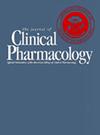Survey of Japanese Orphan Drug Program: Factors Related to Successful Marketing Approval
IF 2.3
4区 医学
Q3 PHARMACOLOGY & PHARMACY
引用次数: 5
Abstract
The basic components of regulatory and supporting policies for orphan drug development appear similar between the United States and Japan, but drugs designated as orphan drugs have been different between the 2 countries. The probabilities of development success (ie, marketing approval) in designated orphan drugs have also been significantly different. In this study, we analyzed recent outcomes of development for orphan drugs designated from 1993 to 2017 in Japan, considering their development and approval status in the United States. Our analysis showed that success for orphan drug development in Japan was apparently associated with prior approval status in the United States. Company size, orphan development experience, and patient enrichment were also positively associated with successful marketing approval. Although similar designations and priority review systems for orphan drugs have been enacted, economic incentives and regulatory conditions provided by the systems seem to be different between the 2 countries, which may lead to varied performance in orphan designation and approval. We need to pay close attention to the impact of industrial global development strategies when comparing the outcomes and performance of different orphan drug promotion systems.日本孤儿药项目调查:成功上市批准的相关因素
美国和日本的孤儿药开发监管和支持政策的基本组成部分似乎相似,但这两个国家被指定为孤儿药的药物有所不同。指定孤儿药开发成功(即上市批准)的概率也有显著差异。在这项研究中,我们分析了1993年至2017年在日本指定的孤儿药的最新开发结果,考虑到它们在美国的开发和批准状态。我们的分析表明,日本孤儿药开发的成功显然与美国的预先批准状态有关。公司规模、孤儿发展经验和患者丰富程度也与成功的营销批准呈正相关。尽管已经制定了类似的孤儿药指定和优先审评制度,但这两个国家之间的制度所提供的经济激励和监管条件似乎有所不同,这可能导致孤儿指定和批准方面的表现各不相同。在比较不同孤儿药推广系统的成果和表现时,我们需要密切关注全球工业发展战略的影响。
本文章由计算机程序翻译,如有差异,请以英文原文为准。
求助全文
约1分钟内获得全文
求助全文
来源期刊
CiteScore
5.10
自引率
3.40%
发文量
176
审稿时长
2 months
期刊介绍:
The Journal of Clinical Pharmacology (JCP) is a Human Pharmacology journal designed to provide physicians, pharmacists, research scientists, regulatory scientists, drug developers and academic colleagues a forum to present research in all aspects of Clinical Pharmacology. This includes original research in pharmacokinetics, pharmacogenetics/pharmacogenomics, pharmacometrics, physiologic based pharmacokinetic modeling, drug interactions, therapeutic drug monitoring, regulatory sciences (including unique methods of data analysis), special population studies, drug development, pharmacovigilance, womens’ health, pediatric pharmacology, and pharmacodynamics. Additionally, JCP publishes review articles, commentaries and educational manuscripts. The Journal also serves as an instrument to disseminate Public Policy statements from the American College of Clinical Pharmacology.

 求助内容:
求助内容: 应助结果提醒方式:
应助结果提醒方式:


